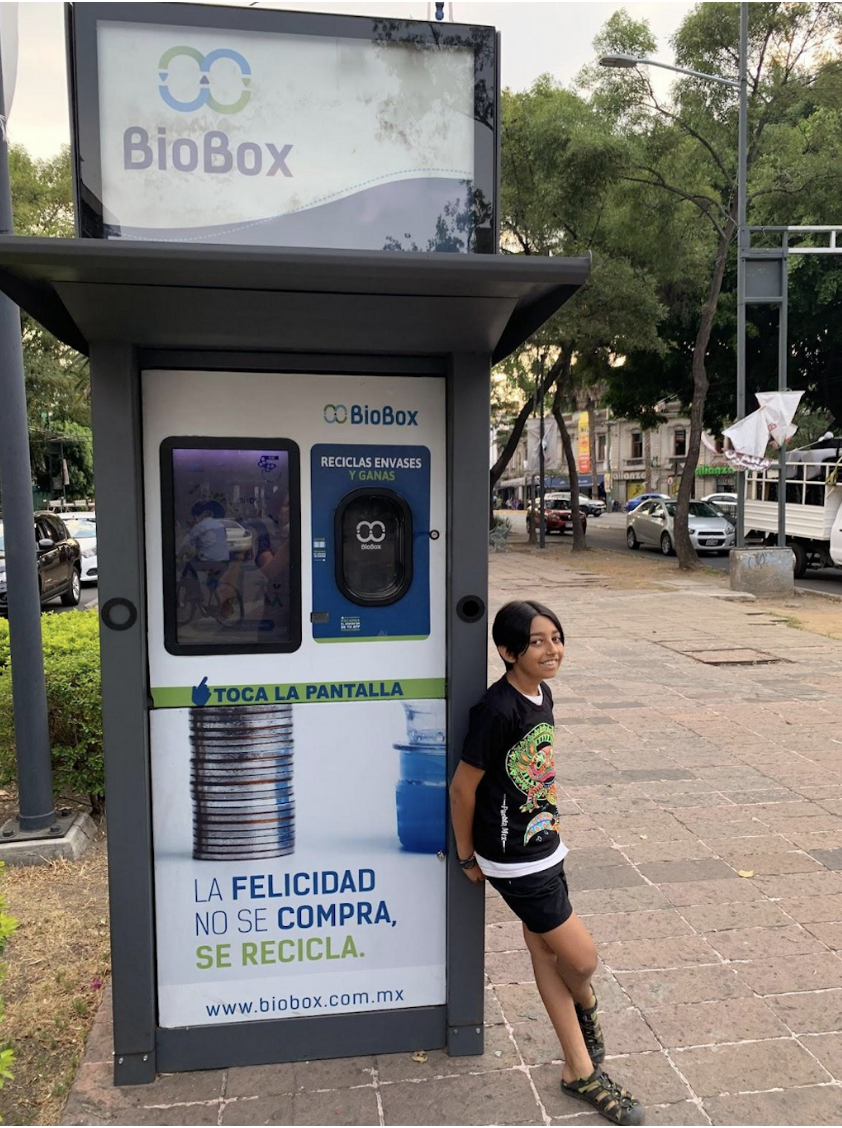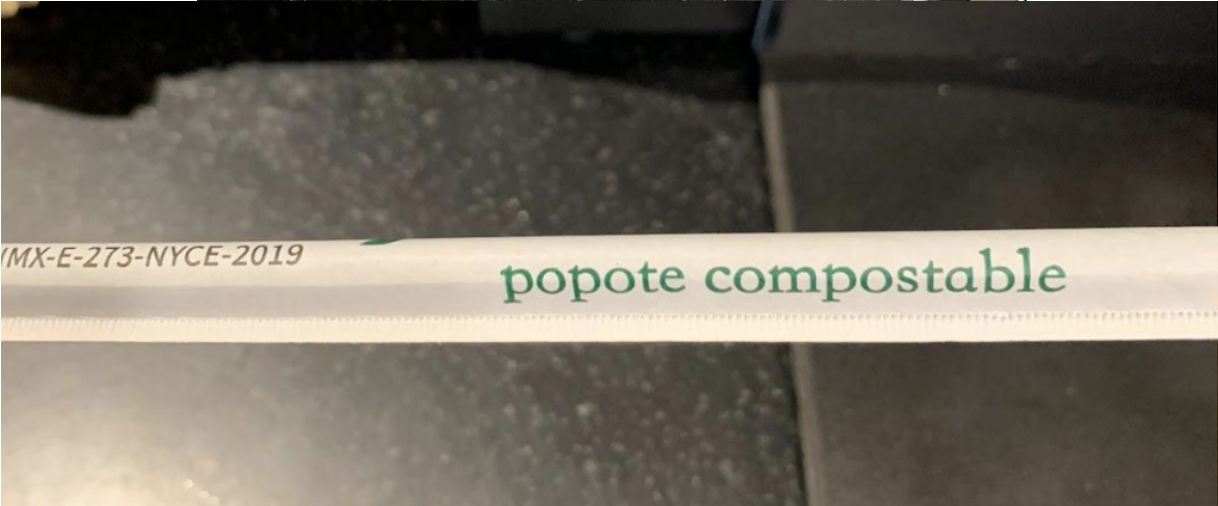My Zero-Waste Adventure: How Mexico Reduces Plastic Pollution
By Seren M. friend of Perform for Change
While living in Mexico City (CDMX), Mexico, I have learned how the city uses zero-waste to reduce plastic pollution. A whopping 13,000 tons of garbage is produced every day in Mexico City, much of it plastic. But on my visit I noticed that Mexico City is now taking many positive steps to reduce wastefulness and end plastic pollution.
Reuse and Refill Are Real Solutions to Plastic Pollution
I recently learned that most plastic is never recycled, in part because it’s really expensive to sort. This means recycling cannot be considered the main solution to plastic pollution—in contrast to what many of us have been taught.
To overcome the inadequacies of recycling plastic, CDMX has a lot of different strategies to end plastic pollution at the source that I find quite interesting: In 2019, 200 nonprofit organizations formed the Mexico Without Plastic Alliance with the massive support of Mexico City residents. This alliance has both promoted individual zero-waste actions to address plastic pollution, such as using reusable items and materials instead of single-use plastic, and also promoting policy change to prohibit single-use plastic. Starting in 2020, the Mexico City government started to ban most single-use plastic items (the first ban was on plastic bags). Other disposable products were banned starting January 1, 2021, requiring companies to find plastic-free alternatives.
Sumesa, a grocery store chain closest to my house, only sells cloth bags at the checkout for your groceries (or you can bring your own for free). Sumesa does not sell plastic or even single-use paper bags at the checkout counter. At this grocery store, the bags for fruits and veggies are made out of compostable paper. Sumesa and other stores have policies regarding plastic bottles. At Sumesa, the 10 Liter water jugs are made out of plastic. If you bring back your empty jug, they’ll refill it for you at a significant discount (you will spend about 175 pesos for a 10 Liter plastic jug filled with water; but if you bring back an empty jug they will refill it for about 60 pesos, a considerable discount). Mexico also sells sodas and drinks in returnable, refillable glass bottles that are easier to recycle once they can no longer be used. If you bring a glass bottle back to stores like Oxxo, they’ll give you another drink in a glass bottle at a discount. The bottles are labeled “Retornable” (“Returnable”). The empty bottle is kept at the store until a bottle plant manager comes to collect it, and then refills or recycles it—avoiding waste.
Preventing Plastic Pollution is More Effective Than Cleaning It Up
Throughout Mexico, the country’s government pays sanitation workers to clean up the streets. I learned that Baja, California, has a law that prohibits the use of plastic bags and polystyrene containers. Unfortunately, not everyone respects these laws. Thanks to the sanitation workers, they’re able to clean up small bits of garbage people leave behind or that find their way into the environment. I’ve heard the government sometimes pays people in need of money to pick up garbage in parks. Hopefully the amounts of plastic pollution on Mexico’s streets shrink with new laws working to end wastefulness at the source, and cleanups will no longer be necessary in the future.
It’s not only the government that’s attempting to end plastic pollution. Once I went to get coconut water from a street vendor, and he gave me a paper straw. He said that he switched from plastic to paper straws because of the environmental crisis that’s going on. He also said to be aware, because the straw can dissolve if it’s in water too long. I chugged my coconut water!
I live near Kura, a sushi restaurant. Instead of napkins, they use EcoTowels, which are moist cotton towels. They are completely reusable (unfortunately, for the time-being, these are wrapped in plastic!). Instead of plastic chopsticks and utensils, Kura uses wood chopsticks. Wood is a natural material, so it’s safe and healthy—as opposed to plastics, which contain chemicals and shed microplastics that harm our health. You can simply wash the wooden chopsticks and use them again.
Around the city, Mexico has distributed BioBoxes. You can place aluminum or plastic into them (this amazing box can separate the items on its own) and the BioBox compacts and crushes it. Once full, the waste is recollected and recycled (aluminum is used to make solar heaters and plastic is used to make blankets and clothes). People who place acceptable garbage into the BioBox are rewarded with points that they can use for discounts in stores and local services. The BioBoxes collect 500,000 of plastic per month, and then are transformed into artisanal products (like this reusable plastic bag below), which are then sold or are donated to schools and charities.
Environmentally friendly practices are also seen at the Starbucks in Mexico. If you bring your own mug (any type of mug, not just a Starbucks’ mug) you’ll get a 8 pesos discount on your drink. According to Starbucks’ employees in Mexico City, this practice started years ago. The U.S.recently adopted a discount program on people using their own cups, whereas Mexico has been doing this for quite some time. Mexico’s Starbucks have also switched from plastic straws to compostable straws with paper packaging. While these are not zero-waste, they are a better choice than conventional plastic.
Other People- and Planet-Friendly Practices in Mexico
“¡Se compran colchones, tambores, refrigeradores, estufas, lavadoras, microondas, o algún hierro viejo que venden!” (“We buy mattresses, drums, refrigerators, stoves, washing machines, or old iron to sell.”) This is the rallying cry of the famous trucks that run around Mexico city. These trucks (also known as the “se compra trucks”) go around and buy old metal. The old kitchen furniture that you don’t use (refrigerators, stoves, microwaves) are bought and recycled instead of ending up in a landfill. This service is made convenient for people, as these trucks roam the city throughout the day and buy directly from people at their homes.
What I notice first when walking around Mexico City is how lush and green it is everywhere, from underneath the highways to trees in the middle of the street. All of the greenery reduces the carbon dioxide being released into the air. Mexico has a very tropical climate, allowing for the growth of trees and plants. Trees have other benefits as well: they keep the streets cool and water is cleaner because trees remove pollutants from rainfall. Most importantly, the trees are beautiful and make people happy.
Mexico City is a leader in bicycling, which helps reduce its reliance on fossil fuels. Every Sunday, seven city streets are closed (including a very large one called Reforma) to cars but are open to bikers, walkers, and joggers. There is a bike network called Ecobici, which allows people to rent bicycles at a low cost (unlimited 45 minute rides for 545 pesos). You can even pay for these bikes using a regular Metrocard. Ecobici started in 2010 and is the largest shared biking system in Latin America. Bikes are always available and bike stands are easy to find (we never have to walk very far). The best part about riding my bike is that I feel safe. Many streets have dedicated bike lanes. Not only do I ride my bike to and from school daily, we often go downtown and to other parts of Mexico City on our bikes. I would say it is a lot faster getting around on your bike than it is in a car.
Of all of the zero-waste practices I have seen in Mexico, the one I would like to see most everywhere in the U.S. is the use of only reusable cloth bags at grocery stores. If the U.S. adopted an “only reusable cloth bag” policy, we could make a significant reduction in the 4.2 million metric tons of plastic packaging Americans use each year. That’s almost equivalent to the weight of 416,000 Eiffel Towers! I am grateful I have been able to live in CDMX and see how this beautiful city and the wider country thrives and innovates to save the environment and protect peoples’ health.








